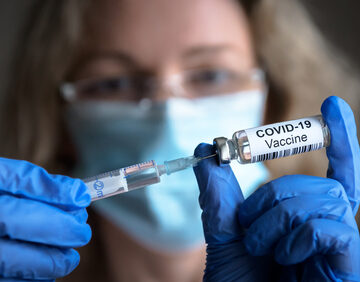Right now is a very exciting time within the COVID-19 period. The roll-out of the COVID-19 vaccine means borders will again open for travel and commerce and pathology clinics will be working with a regular volume of patients once again. However, the scale of vaccinating the entire globe against the pandemic is nothing to be scoffed at. With approximately 7.8 billion immunisations needed, logistics operators will undoubtedly be pushed to the limit as they are required to distribute vaccines to each far flung corner of the globe. Cold chain transport is necessary to ensuring the vaccines arrive at their destination intact and still functioning as planned.
The reason for this is because the COVID-19 vaccine is made up of millions of messenger RNAs: particles that carry the instructions to teach your body how to fight the coronavirus. MRNAs are very delicate and tend to decay when they are exposed to enzymes present in the atmosphere. This means that vaccines need to be appropriately protected when not in use to make sure they are still effective when injected into patients.
Initially, Pfizer developers claimed that their vaccine needed to be stored at -80◦C when not in use. However, in the past few weeks, the U.S. FDA discovered that vaccines continued to work even when stored at temperatures between -25◦C to -15◦C, for up to two weeks. However, when being transported to remote areas of the globe, innovative technology is needed to keep the vaccines stored at a temperature of -80◦C. The vaccines need to be kept at this temperature as they leapfrog across continents, from manufacturer to transport vehicle to medical facility.
This is where cold storage comes into the picture and where the main issues lie with distributing vaccines across the globe. Developing countries with limited access to cold storage facilities are not properly equipped to handle vaccines where they are needed. A cold storage box can cost between $10,000 and $20,000, an extremely expensive investment for countries with limited resources outside of academic testing facilities. However, there are other cold chain storage solutions on the market that make storing and transporting COVID-19 vaccines far more affordable for developing countries.
Countries like America have been investing billions of dollars into cold storage technology used to safely store COVID-19 vaccines. UPS is one company that has created “freezer farms” to store the vaccines before transport. Temperature monitoring technology like that available from ShockWatch can also be used in tandem with storage technology to ensure temperature excursions during transport of vaccines do not breach a safe threshold. Data can be provided to ensure vaccines that will not work are not used on patients.
If you are looking for cold chain temperature indicators or cold chain temperature recorders, please contact us for assistance. We supply temperature monitoring technology at an affordable price point. All of our products are high quality and will make the process of shipping the COVID-19 vaccine more efficient and effective for medical practitioners and patients alike.


